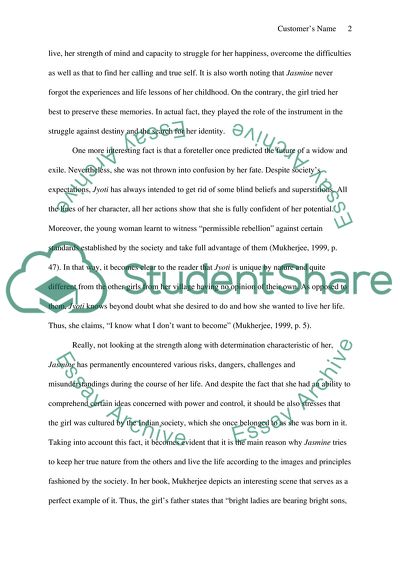Cite this document
(“The role of a woman and the negation in Jasmine by Bharati Mukherjee Book Report/Review”, n.d.)
The role of a woman and the negation in Jasmine by Bharati Mukherjee Book Report/Review. Retrieved from https://studentshare.org/literature/1702218-analysis-of-the-novel
The role of a woman and the negation in Jasmine by Bharati Mukherjee Book Report/Review. Retrieved from https://studentshare.org/literature/1702218-analysis-of-the-novel
(The Role of a Woman and the Negation in Jasmine by Bharati Mukherjee Book Report/Review)
The Role of a Woman and the Negation in Jasmine by Bharati Mukherjee Book Report/Review. https://studentshare.org/literature/1702218-analysis-of-the-novel.
The Role of a Woman and the Negation in Jasmine by Bharati Mukherjee Book Report/Review. https://studentshare.org/literature/1702218-analysis-of-the-novel.
“The Role of a Woman and the Negation in Jasmine by Bharati Mukherjee Book Report/Review”, n.d. https://studentshare.org/literature/1702218-analysis-of-the-novel.


